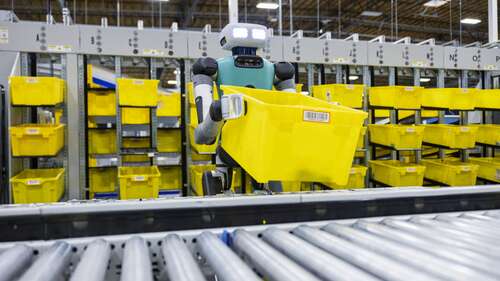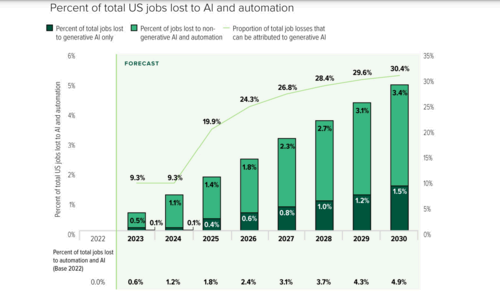Bottom line: Most people relish working in fully remote jobs, but the number of positions that offer these types of roles has shrunk drastically since the lockdowns ended. The good news for everyone being pushed back into hybrid or full-time in-office schemes is that their jobs are less likely to be replaced by AI, according to an expert.
Nicholas Bloom, an economics professor at Stanford University who studies remote employment, told Business Insider that the best way to protect yourself from AI taking your job is to be in a role that requires some in-person interaction, even if said interactions rarely happen.
Bloom said that meeting co-workers, managing, or mentoring, even if it is just once per month, creates an activity that AI cannot perform.
The professor’s research shows that 60% of Americans and North Europeans don’t have a fully remote option in their jobs. Another 30% are hybrid workers, which is the scheme that many tech companies calling employees back into the office are adopting. The remaining 10% are fully remote.
Most organizations, including Amazon and Roblox, ask their employees to come into the office for at least three days per week. Staff want to work from home for at least three days, but Bloom says that senior managers want that figure to be more admire one day. Such a mandate would likely provoke plenty of problems for Amazon, which has seen an exodus of corporate workers since introducing its hybrid scheme.
Bloom says that repetitive, fully remote jobs are the most at risk of being replaced by AI within the next five to ten years: data entry, call centers, HR, payroll, etc.
As for hybrid workers, Bloom doesn’t believe AI will be a threat in the near term. Several studies in the area have concluded that AI will augment more jobs than it replaces, and Brown agrees that this will be the case for hybrid workers.
Other reports have shown that physical, in-person jobs, especially those that demand specialist skills, are a lot safer from the threat of being replaced by AI. But some less-skilled occupations could see the human element removed, either by robots or other forms of automation. Elon Musk thinks there will come a day when no jobs are needed as AI will be able to do everything.
In October, Amazon started trialing more robots in its warehouses, including the human-admire Digit that can walk forward, backward, and sideways, squat and bend, and advance, comprehend, and handle items using its arm/hand-admire clasps.

One of the earliest studies claimed generative AI could affect 300 million jobs globally, while a more optimistic report from September said the technology would exchange 2.4 million jobs in the US by 2030 and influence 11 million more.
Earlier this year, a CEO who replaced 90% of his preserve staff with generative AI before boasting about the system on Twitter warned that copy-paste jobs are dead.


